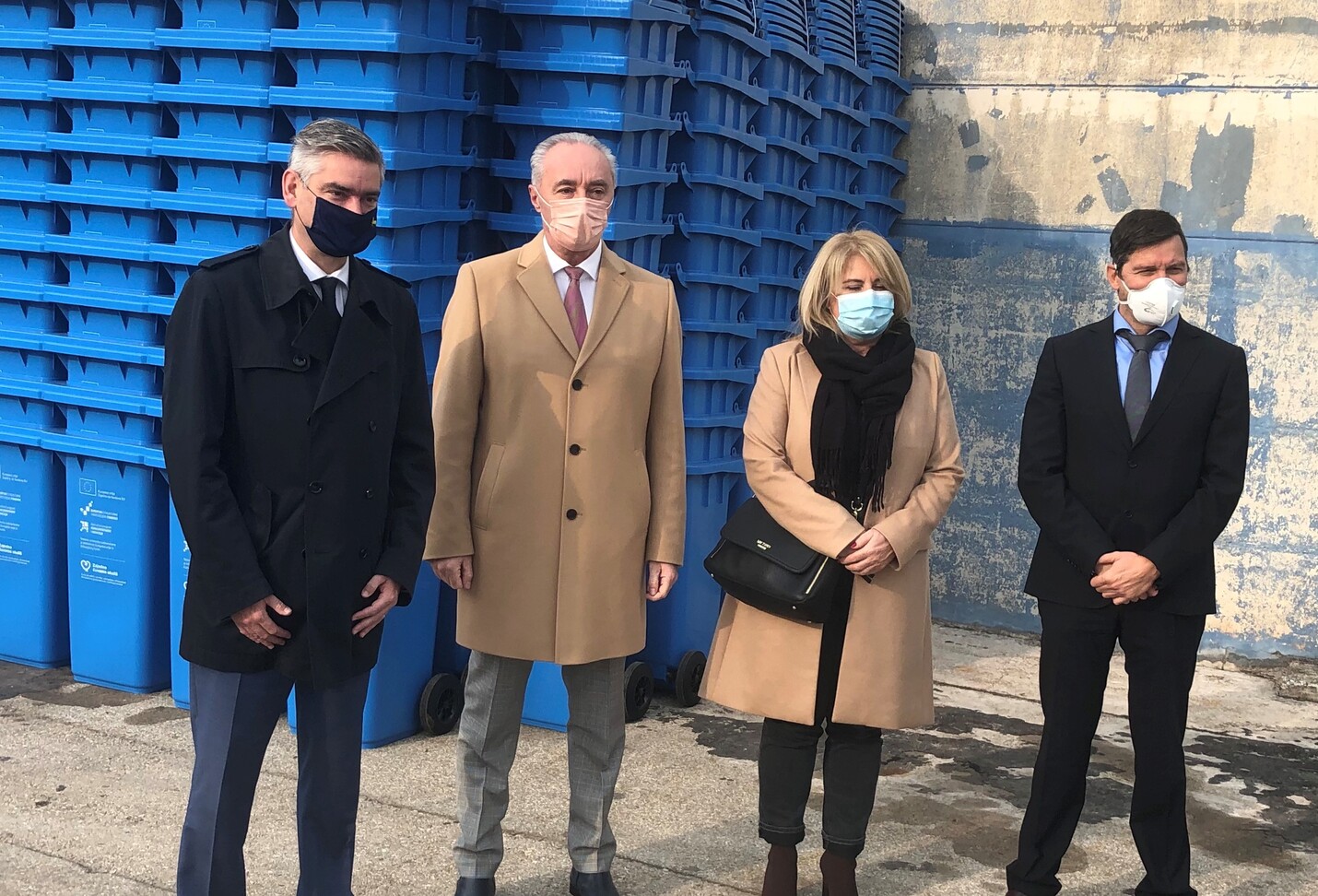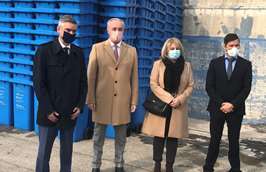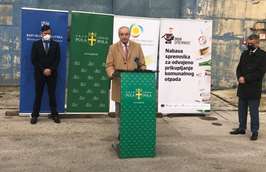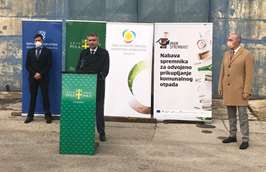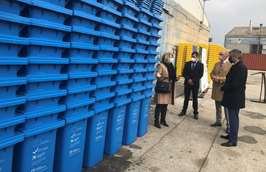16.12.2020.
The investment, worth approximately HRK 370 million, was approved for this purpose to the Fund by the Ministry of Economy and Sustainable Development, which secured the resources from EU funds.
The procurement of containers for separate waste collection, which the Fund conducted for 407 units of local self-government, will allow all citizens to separate waste at source. In the next few months the Fund will supply 1.23 million of containers of different types and volumes to towns and municipalities.
“Despite all restrictions imposed due to the coronavirus outbreak, investments in waste management have not stopped. Recycling yards have been built in Croatia, and Istria as well, utility companies had the opportunity to purchase municipal vehicles, remediation of landfills continued… and some of these projects have been successfully completed, such as landfill Košambra in Poreč,” said Kukić.
He also mentioned the start of a large project, remediation of the municipal waste landfill Kaštijun. “This investment is worth roughly 28 million kunas. The Town of Pula, and Istria in general, are true models of an integrated waste management system,” said Kukić.
During 2020, the Town of Pula received 514 larger containers for paper and plastics, and 69 containers for glass, said Igor Stari, the director of the town company Herculanea. “This is the second part of consignment of smaller volume bins intended for 8000 users in the area of Pula. These are primarily family houses and small entities that have been using bin bags for a few years. This is the final component in the required infrastructure that will make it easier for our citizens to dispose of the waste at source. I would say the bags were a provisional solution, while we waited for these containers to be supplied,” said Igor Stari, expressing satisfaction that the containers had finally arrived, and thanking the Fund for continuous support over the years in establishing the necessary infrastructure.
Kukić pointed out that smaller quantities of waste to be brought to the centre from the units of local self-government would contribute to the centre’s efficiency, adding: “This brings us back to the beginning of this story and the reason for today’s event. The containers will be distributed to the households, and provided that the citizens behave conscientiously and responsibly, and properly separate waste, greater quantities of waste will be sent for recovery and recycling, and only the fraction that cannot be recovered will be treated at Kaštijun.”
Aleksandra Čilić, the head of the Environmental Protection Sector at the Fund, agreed with this, adding that it was evident that the citizens were more aware of the importance of recycling and waste separation. This was corroborated by the numbers, which had increased significantly at national level. She also pointed out that education of and informing the citizens about waste separation was highly important, as well as advising on how to handle the waste that should not be thrown in the containers.
“The project of separate waste collection in Pula was intensified some 12 years ago. We implemented certain pilot-projects, we invested considerable funding in educating the youngest and other citizens of Pula. We are aware that the implementation of green policies, separate waste collection definitely being one of them, is important for the protection of our environment; but in the end, the price of waste management is paid by the users,” said the mayor of Pula, Mr. Miletić, adding that the pressure on Kaštijun will subside. “We – all of us together – can make a lot for environmental protection, and one significant move in the right direction is waste separation at source,” concluded Miletić.
